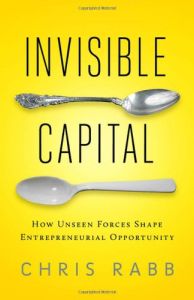Join getAbstract to access the summary!

Join getAbstract to access the summary!
Chris Rabb
Invisible Capital
How Unseen Forces Shape Entrepreneurial Opportunity
Berrett-Koehler, 2010
What's inside?
Budding entrepreneurs: Exploit all your assets, seen and unseen.
Recommendation
How do you explain the high failure rate for new businesses in the US, land of opportunity and the American Dream? A great concept, hard work and seed money often are not enough to ensure success. So says consultant Chris Rabb, who explains that, in addition to economic capital, entrepreneurs need “invisible capital” to succeed. These unseen assets consist of the accumulated knowledge, experience, networks and personal strengths prospective business owners bring to their ventures. Presenting an original idea like invisible capital is a challenge, and Rabb succeeds at times in explaining it through examples, demographic data and academic studies. But his book suffers from his scatter-shot approach, which veers from sociological text to policy analysis to social critique. While alerting readers that this is not a how-to guide, getAbstract finds that the book provides good insights about the myths and realities of “micropreneurship,” along with thought-provoking information on why new businesses fail – and how to make yours succeed.
Summary
About the Author
Chris Rabb is a writer, consultant and speaker on entrepreneurship. He worked as a US Senate aide on small business matters, and he founded and ran several enterprises.


















Comment on this summary